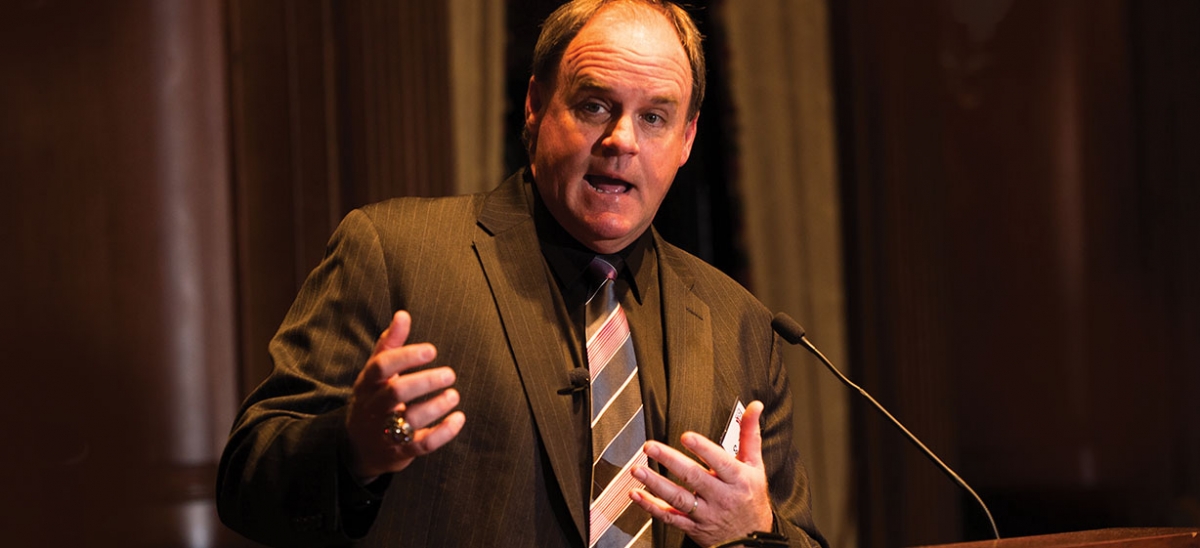The aftermath of an 8-8 season

Last year wasn’t the type of season that we are used to having. In any organization, there are always going to be high moments and low moments. I have been very fortunate to be part of two Super Bowl victories and one Super Bowl loss. It’s a great feeling, the high that you get when you win a Super Bowl.
When we went into the locker room, and the team came in, we congratulated each and every one of them. The only thing I could always remember saying is, “No one can take this away from you; it’s something that you have for the rest of your life.”
Conversely, this past season, our second-to-last game was against the Cincinnati Bengals. If we won, we were still alive. Unfortunately, we lost. And we were eliminated.
The Pittsburgh Steelers are about one thing and one thing only, and that’s to win a Super Bowl championship. If you don’t qualify for the playoffs, you can’t win a championship. And thus, you will be a failure that year. And right now, we are dealing with a failure type of situation in our minds. That feeling of what we experienced during that Cincinnati game far outweighs the feeling when you win a Super Bowl. My wife is very insightful. And when I got this job, she was asked, “Do you think this is Kevin’s dream job?” And she said, “If they win, it will be, and if they lose, it’ll be a nightmare.” And there is some truth to that. Still, it’s a blessing to work for such a wonderful organization. But right now, our focus is on trying to get back to that championship level.
A long time ago, I was scouting down through the South and I went past Grambling University. You may or may not know of their coach, a gentleman named Eddie Robinson. Coach Robinson was one of the winningest coaches in college football history—a great man and a great college football coach. I happened to walk by his office one day. His door was open; he was sitting there by himself. I just wanted to go in and thank him for allowing me to be on his campus and shake his hand and walk out. Well, I walked into his office, he shakes my hand, and I introduce myself. He introduces himself, which he didn’t need to do. And he made me sit down. We talked for 45 minutes. As I got up to leave, I said, “Coach, just give me one thing that I can take away from this session.” He didn’t hesitate. He said, “You have to have a plan, you have to practice that plan, and you have to execute that plan.” Simple. Have a plan. Practice it. And execute it.
When I stand here in this off-season, trying to get away from that 8-8 feeling, and get back to a Super Bowl championship, I reflect on those moments. It’s easy to have a plan and have intentions. But your co-workers and your customers (in our case fans) are not going to believe in you until you put that plan into action. Part of our plan throughout the season last fall was that our scouts were out evaluating new college talent, and our pro scouts were out evaluating pro talent. And I and other administrators were planning for what we could afford. This plan unfolds really from the beginning of August through the end of April with the draft that we just concluded.
But when you are 8-8, you have to first of all realize that that’s a problem. Second, you have to take ownership of that problem. In my mind the team wasn’t good enough. But that team was put together by yours truly. So I need to step up and say, “The job that I did wasn’t good enough.”
After the season, we had to decide who we could keep, who we want to keep, and how we are going to be able to do it. Sometimes that’s going to involve emotional reductions to your roster because you’re probably going to have to eliminate some players who have been a big part of your success. That’s never an easy thing to do. But in the National Football League, we have to work under the constraints of the salary cap. We had to make some tough cuts. We cut James Harrison and Willie Colon. They both had been a big part of our success. We came to realize that we couldn’t keep Mike Wallace. We weren’t going to be able to afford Rashard Mendenhall and stay under the salary cap. Again, it’s not easy to say goodbye, but you better have a plan in place to follow through and replace these players. And this goes back to the scouting to find guys that will help us get away from that 8-8.
The first thing we did was sign quarterback Bruce Gradkowski. He’s a local kid who played his high school football at Seton LaSalle. Now he’s become our backup.
We were able to re-sign our own guys, Larry Foote, Ramone Foster and Gregg Warren, and we also brought back Matt Spaeth and William Gay, who had been with us previously. That was the main flux of the free agency part of our deal. Then we moved into the most important part of our deal, the lifeblood of the Steelers organization—and that’s the draft.
We had nine picks in all. Our first pick was a young man named Jarvis Jones, a linebacker from Georgia. Our second round pick was Le’Veon Bell, a running back from Michigan State. Our third rounder was wide receiver Markus Wheaton from Michigan State, and our fourth rounder was Shamarko Thomas from Syracuse. We had five other picks and had 15 free agents, and that’s the group of 90 players that we will take to camp and see if they are good enough to get us back to that championship level.
As we stand here today, none of us knows whether we will succeed or whether we will fail again. I’m sure that in your everyday lives, in whatever you do, you have to be ready to face up to the successes and the failures. The past success that we have had has absolutely nothing to do with the future success of our team. Sure, there are principles that we follow. There are ideas that we have entrenched in our core, but we also have to be open to new technologies and new ideas, because if we are not, that is very selfish and arrogant thinking.
We have to be open to being better, and that’s our drive. That’s our goal. So as we leave here today I can leave you with one thing. If you fail, just don’t give up. But if you succeed, don’t let up. It’s never guaranteed. It’s never easy. It’s always going to be challenging. But it’s going to be fun.
Editor’s note: Steelers General Manager Kevin Colbert spoke recently at the quarterly CEO speakers series hosted by Robert Morris University and Pittsburgh Quarterly. Colbert’s remarks were slightly abridged.





